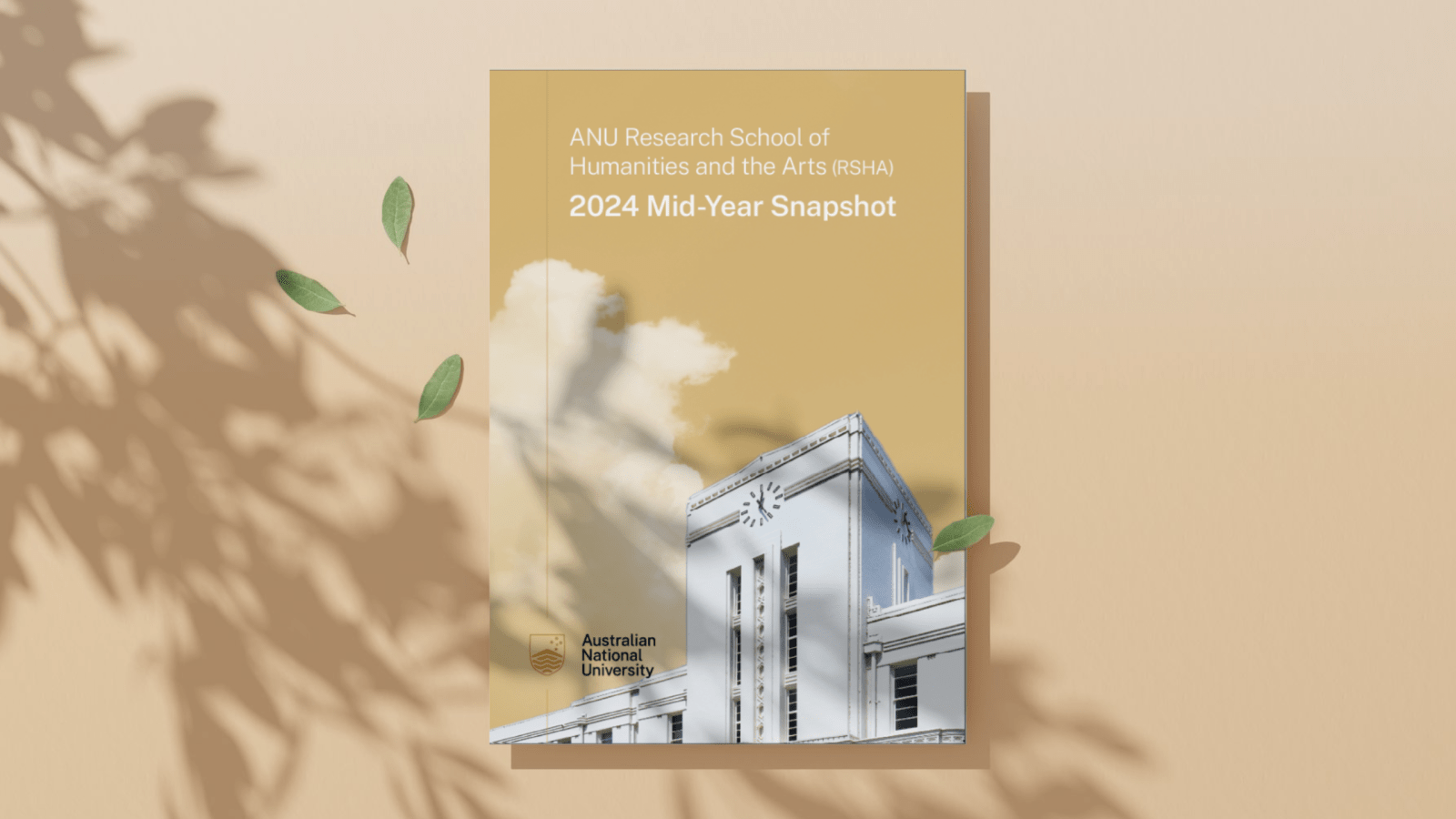Just released: 2024 RSHA Mid-Year Snapshot

We are delighted to announce the release of the 2024 ANU Research School of Humanities and the Arts Mid-Year Snapshot.
This publication celebrates our School’s research excellence across 2023/2024, highlighting stories of success and groundbreaking contributions to Australia and the world.
The 2024 Mid-Year snapshot is a testament to the many ways our academics are enabling societal, environmental, cultural, health, and economic impact.
The projects, collaborations and actions featured herein succinctly evidence the School’s capacity to provide innovative solutions to the most pressing issues facing humanity in the 21st century.
We hope this source of knowledge offers you a glimpse into the transformative work of our researchers, empowering your understanding of the challenges ahead and inviting you to join us in tackling them.
View the online report or get a physical copy at the foyer of A.D. Hope Building #14.
Director’s note
The ANU Research School of Humanities and the Arts (RSHA) is recognised nationally and internationally for its impactful, world-leading research and innovative creative arts practice.
We draw together a diverse range of disciplines including archaeology, anthropology, biological anthropology, literary and classical studies, languages and linguistics, as well as contemporary art and music practice.
Our research contributes to a deep and sustained understanding of how humans have historically encountered and influenced the world, and uses these insights to address urgent issues in the present.
I am delighted to share this snapshot of the exciting research undertaken by the Research School across 2023/2024.
We have celebrated numerous outstanding achievements over this time, including adding three new Australian Research Council (ARC) Fellows to the current 15 Fellows in the School.
This period has also seen the development and expansion of exciting collaborations within ANU and with external partners including galleries, libraries, museums, hospitals, health providers and a range of community organisations.
Our research continues to provide deep insights into human behaviour, ethics, and cultural practices. It fosters empathy and understanding, and guides responsible technological and environmental strategies.
Our work is influencing health and wellbeing outcomes, particularly focusing on Indigenous health and improving communication between health professionals to increase patient safety.
Our studies on human-environment interactions are contributing to greater environmental sustainability.
Our expertise in technological and computational knowledge is developing important new human-centered design and investigation frameworks for collaboration with STEM disciplines, business, government, and industry stakeholders.
There is so much exciting, innovative research to celebrate in RSHA, and the following is just a snapshot of what we do. It is divided into six thematic chapters, focused on areas of major critical interest: big issues, such as working with AI and the impacts of climate change, that demand transdisciplinary collaborations and approaches.
It serves not only as a celebration of our recent achievements but as a showcase of our collective expertise - and I hope it provides some sense of our academics’ wonderful talent and innovation.
RSHA’s research will continue to inform national and international debates, practices and policies as we grapple with what it means to be human in an increasingly sophisticated, and complicated, world.
Please get in touch if you would like further information or would like to collaborate with us.
Professor Kate Mitchell
Director
File attachments
| Attachment | Size |
|---|---|
| rsha-research-overview-web-version-2024-compressed_3.pdf(4.91 MB) | 4.91 MB |